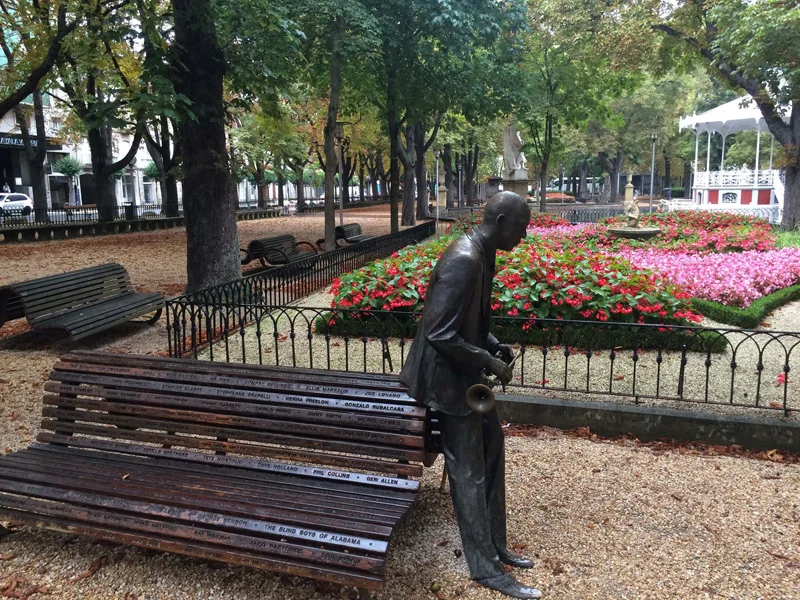Vitoria-Gasteiz

Julio & christina
We fell deep in love with the Basque country and Vitoria Gasteiz was no exception. As the seat of Basque government, this city wasn't on the tourist track but instead felt like a real town where people were just living their day-to-day lives. The weather was mostly overcast while we were there which added to the romantic, authentic and charming feel of it in every way. We walked the cobblestone streets, toured the monuments and sampled the delicious local wines and pintxos.
One thing that stood out were the amount of Basque separatist flags hanging in all the windows and domiciles throughout the city. This brought us down the rabbit hole of learning more about the Basque nationalist movement. The people here have a strong ethnic identity that includes their own language, Euskara, which is considered to be unrelated to Indo-European languages. The language further represents a lineage to an older culture that supposedly predates the arrival of agriculture here 7,000 years ago. The community itself actually covers parts of modern-day Spain and France and both countries have used the language as a political issue, restricting its use both historically and/or currently. This has not stopped the language or culture from surviving, with most Basque people being bi-lingual and speaking both Euskara and Spanish or French.
The Basque separatist movement began in the 19th century but strengthened in the fifties through paintings, pitching Basque flags and pamphlets— and later escalated into violence after shocking revelations emerged of torture practiced by Spanish police on Basque activists during repression in the mid 1960s. This began a long and violent battle between ETA - Euskadi Ta Askatasuna - and the Spanish government which led to a voluntary disarmament by ETA in March 2017.
When you walk the streets and talk to the people here, you will notice that no one is wearing any Spanish futbol regalia. Outside of Basque teams, you realize that the push towards self government and independence continues to be strongly supported.
Actually, when traveling all over Spain, you will see that each region is tremendously unique with their own cultures, resources and languages; fundamentally, they seem to all be seeking some form of independence from the whole. It's interesting to note, especially as Spain has come from behind to become the fastest growing economy in the EU - perhaps due to its size and diversity. As the unified Spain continues on, it will be fascinating to see how the government deals with these growing issues. There is a similar independence push by the southern Spanish Catalan region going on as well. Will the post-Franco unification and democracy that we know continue to maintain speed and how will these ethnic and cultural communities be recognized? Only time will tell.
The oldest building in Vitoria.
Where the Basque parliament takes place.
We came across the veranda where all the seniors of the town where dancing and enjoying each other on a cool summer night.
FOOD FACTS: Stepping out from beneath the shadow of Bilbao and San Sebastian, Vitoria-Gasteiz has recently been given the title of Spain's Gastronomy Capital (a national award judged by culinary leaders). There are now several Michelin star restaurants and some of the most coveted Pintxo routes in all of Spain with each bar/restaurant creating a signature dish under 5 euros. The region is known for local beans, mushrooms, fish, snails and potatoes which are all common ingredients in Vitorian cuisine




















